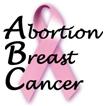Women's Group Accuses Redbook of Misrepresenting Breast Cancer Research
A women’s group today accused Redbook of misrepresenting research associating breast cancer with induced abortion and the birth control pill in an article published in its September, 2001 issue by Nancy Monson called, "Seven cancer facts you need to know now."
Karen Malec, president of the Coalition on Abortion/Breast Cancer said, "It’s strange that Dr. Mitchell Creinin of the University of Pittsburgh and Dr. Andrew Kaunitz of the University of Florida denied that abortion and oral contraceptives cause breast cancer. Medical experts agree that breast cancer risk is increased significantly each year that a first full term pregnancy (FFTP) is postponed. This glaring omission of the facts reveals their ideological bent."
"We’re not surprised," said Mrs. Malec "that these experts would deny that the pill and abortion cause breast cancer. Kaunitz led nationwide clinical trials to bring Lunelle, a new birth control method, to the marketplace. Creinin researched the use of ultrasound to determine the effectiveness of mifepristone and misoprostol (RU-486) for abortion. Many researchers are profiting from sales of contraceptives and abortions."
Dr. Chris Kahlenborn, author of the book, Breast Cancer: Its Link to Abortion and the Birth Control Pill, discussed the Oxford study which was cited by Kaunitz as evidence that there is no link between the pill and breast cancer. [p. 32] Kahlenborn reported that the study had two significant weaknesses: 1) It failed to determine the consequence of using the pill during the most dangerous time in a woman’s life -- before a FFTP; and 2) It failed to provide for a sufficient latent period which would allow for time to elapse between exposure to the pill and the development of tumors. 1
Kahlenborn cited studies demonstrating a 40% increased risk of breast cancer among women who use the pill before a FFTP and a 72% increased incidence among women who use the pill for four or more years before a FFTP. He added that using the pill for a prolonged period, 4 years or more, at any time during a woman’s life increases breast cancer risk. [p. 36-37]
Apart from the effect of postponing a FFTP, 28 out of 37 studies published since 1957 have independently linked abortion with breast cancer, but only two studies were mentioned in the Redbook article.
Malec continued, "According to Dr. Edison Liu of the National Cancer Institute, ‘One study does not make a conclusion.’ In his discussion of the abortion-breast cancer (ABC) research, Creinin relied on a single study to deny an ABC link, the 1997 Melbye study, although 28 studies call for the opposite conclusion. Creinin ignored the fact that even Melbye reported that ‘[w]ith each one week increase in the gestational age of the fetus...there was a 3 percent increase in the risk of breast cancer.’" 2. Malec cited a different prospective study conducted in New York which was ignored by Creinin. The 1989 Howe study reported a statistically significant 90% increased risk of breast cancer. Such a study depends upon medical records for its data, not interviews. As such, it rules out any possibility of recall bias, errors allegedly occurring due to faulty reporting by women. 3 "Creinin argued that recall bias is an explanation for the remaining 27 studies showing a positive association; but several groups of scientists have sought evidence of this phenomenon and none has ever proven that it exists. Nevertheless, Creinin considers recall bias theory a fact," said Malec.
Melbye was jettisoned by its own publisher, The New England Journal of Medicine, three years after its publication. "Had Drs. Creinin and Kaunitz properly researched these issues," said Mrs. Malec, "they would have learned that the NEJM published an article identifying abortion and oral contraceptives as possible ‘risk factors.’" 4
Malec reported that "Creinin’s misrepresentations closely follow Planned Parenthood’s portrayal of the ABC research." Planned Parenthood is being sued by three women in California Superior Court. The suit alleges that Planned Parenthood makes "confusing, false, and misleading representations concerning the safety of abortion." The plaintiffs seek an injunction to compel Planned Parenthood to: 1) Accurately represent the research to its patients; 2) Prohibit it from ‘making untrue or misleading statements... that abortion is safe and/or that it is safer than childbirth;’ and 3) Inform its patients who’d procured abortions at its California facilities of their increased risk of breast cancer." 5
"Doctors should be cautious about representing abortion as a safe procedure," advised Malec. "The California suit is the second in the country for false advertising, and a personal injury suit was filed in Pennsylvania because of a physician’s failure to inform his patient about the breast cancer risk. It is reprehensible that American scientists have struggled to cover-up the link for 44 years. We invite women to visit our website at www.AbortionBreastCancer.com for documentation of this cover-up."
Malec concluded her comments saying, "As a cancer survivor, I am deeply disturbed by the Byzantine and egregious efforts of the abortion industry and its supporters in organized medicine to conceal the facts, just as the tobacco industry covered up a link between tobacco and cancer. If experts like Redbook’s would only honestly represent the evidence of an ABC link, then women who've had abortions could take risk reduction drugs (such as tamoxifen and raloxifene), and they'd be motivated to seek early detection of the disease. Tragically, women will depend on Creinin’s and Kaunitz’s statements, and many will suffer and lose their lives because Redbook failed in its obligation to disseminate the truth.
We, therefore, demand from Redbook an immediate and prominent retraction of the article and a new article containing an honest portrayal of the ABC research. Redbook’s readers have a right to know the truth, and the magazine has a social responsibility to provide it."
Readers can write to Redbook at: Redbook Mail 224 West 57th St. New York, NY 10019 212/649-3330 (phone) 212/247-1086 (fax) redbook [at] hearst.com
Write to Dr. Mitchell Creinin at: Department of Obstetrics, Gynecology and Reproductive Sciences Magee-Womens Hospital 300 Halket Street Pittsburgh, PA 15213-3180
Write to Dr. Andrew Kaunitz at: Health Science Center University of Florida 653-1 West Eighth Street Jacksonville, Florida 32209
The Coalition on Abortion/Breast Cancer is an international women’s organization founded to protect the health and save the lives of women by educating and providing information on abortion as a risk factor for breast cancer.
- 1. Collaborative Group on Hormonal Factors in Breast Cancer. "Breast cancer and hormonal contraceptives: further results," Contraception (1996) 34: S1-S106
- 2. Melbye et al. (1997) NEJM 336:81-5
- 3. Howe et al. (1989) Int J Epidemiol 18:300-4
- 4. Armstrong (2000) NEJM 342:564-71
- 5. Agnes Bernardo, et al v. Planned Parenthood Federation of America and Planned Parenthood of San Diego and Riverside Counties

